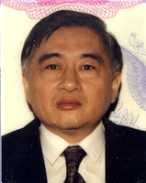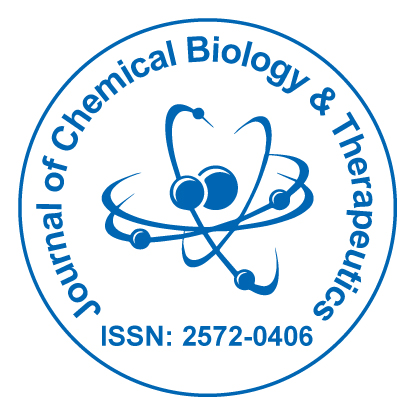Our Group organises 3000+ Global Conferenceseries Events every year across USA, Europe & Asia with support from 1000 more scientific Societies and Publishes 700+ Open Access Journals which contains over 50000 eminent personalities, reputed scientists as editorial board members.
Open Access Journals gaining more Readers and Citations
700 Journals and 15,000,000 Readers Each Journal is getting 25,000+ Readers
Indexed In
- RefSeek
- Hamdard University
- EBSCO A-Z
- Publons
Useful Links
Share This Page
Song-Yu Yang

Song-Yu Yang
Professor
Graduate School of the City University of New York
United States of America
Biography
Senior Research Scientist, NYS Office for People With Developmental Disabilities (OPWDD)
Head, Laboratory of Medical Biochemistry, NYS Institute for Basic Research in Dev. Dis.
Adjunct Professor, Graduate School of the City University of New York
Editor, Journal of Chemical Biology and Therapeutics, OMICS
Tel: +1-7184945317
Education:
1984 Ph.D. Biochemistry, The City University of New York, New York, USA
1960 M.D. (medical school diploma), Beijing Medical University, Beijing, China
Professional Experience:
2007 Adjunct Professor, Graduate School of the City University of New York
1994 Head, Laboratory of Medical Biochemistry, NYS Institute for Basic Research in Developmental Disabilities
1991 Investigator, American Heart Association
1988 Research Scientist, NYS Office for People With Developmental Disabilities
1984 Research Associate, Research Foundation of the City University of New York
1981 Teaching Assistant, The City College of the City University of New York
1980 Assistant Professor, Shanghai Institute of Biochemistry and Cell Biology, Chinese Academy of Science, China
1964 Instructor, Peking Medical College, China
Research Interest
The goal of his research laboratory is to unravel the pathophysiological mechanism of 17β-hydroxysteroid dehydrogenase type 10 (17β-HSD10) deficiency and Alzheimer's disease for the development of effective treatments of neurodegenerative disorders. The research scope is an expansion of our previous 18 years of research focus on the HSD17B10 gene and the gene product 17β-HSD10. His research group first cloned this gene from human brain, decoded the HSD17B10 gene structure, and characterized 17β-HSD10, which is a homotetrameric mitochondrial multifunctional enzyme. We found 17β-HSD10 playing a critical part in the metabolism of isoleucine and neuroactive steroids. We discovered its unique role in the oxidative inactivation of allopregnanolone (ALLOP) and the biosynthesis of dihydrotest- osterone (DHT). Based upon our findings we proposed a revised molecular switch theory. The maintenance of homeostasis of 17β-HSD10 is critical to the prevention and treatment of neurodegenerative disorders such as Alzheimer’s disease, Parkinson disease, and 17β-HSD10 deficienccy, an interlectual developmental disability.
His research group also has comprehensive research experience in the elucidation of molecular mechanism of fatty acid oxidation especially the HADH gene and the gene product L-3-hydroxyacyl-CoA dehydrogenase.
Certificate
Global Speakers in the subject
Global Experts in the subject
Publications
A Do-it-Yourself Protocol for Making Desired Mutant Proteins
| Xue-Ying He, Carl Dobkin and Song-Yu Yang |
| Research Article: J Chem Biol Ther 2015, 1:101 |
| DOI: 10.4172/2572-0406.1000101 |

 Spanish
Spanish  Chinese
Chinese  Russian
Russian  German
German  French
French  Japanese
Japanese  Portuguese
Portuguese  Hindi
Hindi 